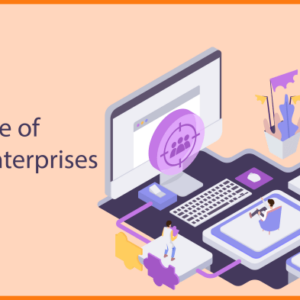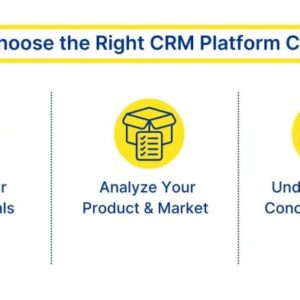The Benefits of Cloud-Based CRM for Scaling Your Business are undeniable. Forget clunky spreadsheets and endless email chains; cloud-based CRMs are revolutionizing how businesses manage growth. Imagine effortlessly scaling your operations, boosting customer satisfaction, and slashing IT costs – all while working smarter, not harder. This isn’t just about software; it’s about unlocking your business’s full potential. We’ll dive into the specific advantages, revealing how a cloud-based CRM can be your secret weapon for conquering new markets and leaving the competition in the dust.
From streamlined sales processes and automated tasks to improved customer relationships and significant cost savings, the impact of cloud CRM on business scalability is transformative. We’ll explore how seamless data access, enhanced collaboration, and robust security features contribute to a more efficient, profitable, and future-proof operation. Get ready to ditch the headaches and embrace the efficiency.
Increased Efficiency and Productivity
Switching to a cloud-based CRM is like upgrading from a rotary phone to a smartphone – a massive leap in efficiency and productivity. It streamlines your entire sales process, automates tedious tasks, and fosters seamless collaboration across your teams, ultimately boosting your bottom line. Forget juggling spreadsheets and endless email chains; a cloud CRM brings everything together in one centralized, accessible hub.
Cloud-based CRMs dramatically streamline sales processes by centralizing all customer information. Imagine having instant access to every interaction, from initial contact to closed deals, all in one place. This eliminates the time wasted searching through disparate systems and ensures everyone is working with the most up-to-date information. This real-time access allows for quicker decision-making and faster response times, leading to a smoother, more efficient sales cycle. No more missed opportunities due to lost or outdated data!
Automated Task Management
Automation is a game-changer in boosting productivity. Cloud CRMs automate repetitive tasks like data entry, email marketing campaigns, and follow-up reminders, freeing up valuable time for your team to focus on higher-value activities, such as building relationships with clients and closing deals. For example, automated email sequences can nurture leads and keep them engaged throughout the sales process, significantly increasing conversion rates. Think of it as having a tireless virtual assistant working 24/7 to handle your administrative burden.
Improved Team Collaboration
Effective teamwork is crucial for success, and a cloud-based CRM acts as a central communication hub. Sales, marketing, and customer service teams can access and update information simultaneously, eliminating data silos and fostering better collaboration. For instance, the marketing team can see which leads are actively engaged by the sales team, allowing for more targeted campaigns. Similarly, customer service reps can access complete customer histories, ensuring consistent and personalized support. This shared access to information improves response times and enhances customer satisfaction.
Task Completion Time Comparison
| Task | Time Without CRM (minutes) | Time With CRM (minutes) | Percentage Improvement |
|---|---|---|---|
| Lead Qualification | 30 | 15 | 50% |
| Data Entry for New Client | 20 | 5 | 75% |
| Sending Follow-up Emails | 60 | 10 | 83% |
| Generating Sales Reports | 120 | 30 | 75% |
Enhanced Scalability and Flexibility
Scaling your business shouldn’t feel like scaling Mount Everest. A cloud-based CRM makes the ascent significantly easier, offering a level of flexibility and scalability that on-premise systems simply can’t match. Imagine effortlessly adapting to booming growth without the headache of expensive infrastructure upgrades or agonizing wait times for IT support. That’s the power of the cloud.
Cloud-based CRMs are designed to effortlessly accommodate growth. As your business expands, you can easily add users, increase storage capacity, and integrate new functionalities without significant disruptions. This seamless scalability allows you to focus on what truly matters: serving your customers and driving revenue. Unlike on-premise systems that require significant upfront investment and ongoing maintenance, cloud CRMs offer a pay-as-you-go model, aligning costs directly with your needs. This means you only pay for the resources you consume, making it a financially sound choice for businesses of all sizes, especially those experiencing rapid expansion.
Cost and Infrastructure Comparison: Cloud vs. On-Premise CRM
The difference between scaling a cloud-based CRM and an on-premise system is night and day. With an on-premise system, scaling means investing in new servers, upgrading your network infrastructure, and hiring additional IT staff to manage the increased workload. This translates to substantial upfront costs and ongoing maintenance expenses. In contrast, scaling a cloud-based CRM is a matter of adjusting your subscription plan. You simply increase the number of users or storage space as needed, paying only for the additional resources consumed. This eliminates the need for large capital expenditures and reduces the burden on your IT department. Consider a small startup experiencing exponential growth. An on-premise solution would quickly become a financial and logistical nightmare, while a cloud CRM would allow them to seamlessly accommodate the influx of new customers and data without breaking the bank or slowing down operations.
Accessing Data and Functionalities from Anywhere
The beauty of a cloud-based CRM lies in its accessibility. Your sales team, marketing department, and customer service representatives can access crucial customer data and CRM functionalities from anywhere with an internet connection. This mobility empowers remote teams, improves collaboration, and ensures that everyone is working with the most up-to-date information. Imagine a sales representative closing a deal while traveling internationally, or a customer service agent resolving an issue from home. This level of accessibility significantly boosts productivity and responsiveness, providing a competitive edge in today’s dynamic business environment. This eliminates geographical limitations and enables real-time collaboration regardless of location, leading to faster response times and improved customer satisfaction.
Scenario: Rapid Expansion into New Markets
Let’s say a mid-sized e-commerce company wants to expand into a new European market. With a cloud-based CRM, they can quickly provision additional user accounts for their new sales and support teams in that region. They can easily configure the CRM to support the local language and currency, and instantly access data and analytics specific to the new market. This rapid deployment capability is crucial for seizing market opportunities and gaining a first-mover advantage. Contrast this with an on-premise system, where setting up a separate infrastructure for the new market would be a lengthy and costly process, potentially delaying market entry and losing valuable time to competitors. The cloud CRM allows for a much faster and more cost-effective expansion, allowing the company to focus on building market share rather than wrestling with IT infrastructure.
Improved Customer Relationship Management: The Benefits Of Cloud-Based CRM For Scaling Your Business
Switching to a cloud-based CRM isn’t just about boosting efficiency; it’s about fundamentally transforming how you interact with your customers. It allows for a level of personalization and proactive engagement previously unimaginable, leading to stronger relationships and ultimately, increased loyalty and revenue. This shift empowers businesses to move beyond transactional interactions and cultivate genuine connections with their clientele.
Cloud CRMs offer a centralized repository of customer data, providing a 360-degree view of each individual. This holistic understanding allows for highly personalized interactions, tailored to individual preferences and past behaviors. Imagine a scenario where a customer’s recent purchase triggers a targeted email suggesting complementary products, or a service agent anticipates a customer’s needs based on their interaction history. This proactive approach fosters a sense of value and appreciation, setting your business apart from the competition.
Personalizing Customer Interactions with Cloud CRM Features
Leveraging cloud CRM features for personalized interactions involves more than just collecting data; it’s about using that data intelligently. Segmentation, automated workflows, and personalized communication channels are key. For example, a clothing retailer might segment customers based on purchase history (e.g., casual wear vs. formal wear) and send targeted email campaigns showcasing relevant new arrivals. Automated workflows can trigger personalized emails based on specific actions, such as abandoned carts or birthdays. Offering multiple communication channels (email, SMS, in-app messaging) allows for tailored communication based on customer preference.
Key Metrics Demonstrating Improved Customer Satisfaction
Measuring the impact of a cloud-based CRM on customer satisfaction requires focusing on key metrics. Customer satisfaction scores (CSAT) and Net Promoter Scores (NPS) are vital indicators of overall happiness. Analyzing these metrics before and after CRM implementation provides quantifiable evidence of improvement. Reduced customer churn rates and increased average order value also reflect the positive impact of improved customer relationships. For instance, a company might see a 15% increase in CSAT scores after implementing a new CRM system that allows for faster response times and more personalized communication. Similarly, a reduction in customer churn from 10% to 5% clearly demonstrates the effectiveness of the system in retaining customers.
Cloud CRM and Targeted Marketing Campaigns
Cloud CRMs excel at enabling effective customer segmentation and targeted marketing. By analyzing customer data (demographics, purchase history, website activity), businesses can create highly specific segments. This allows for tailored marketing messages that resonate with individual groups, increasing engagement and conversion rates. For example, a financial institution might segment customers based on their investment goals (retirement, education) and send personalized investment advice and product recommendations. This approach is far more effective than generic marketing blasts, resulting in higher ROI on marketing spend.
Features Improving Customer Service Response Times and Efficiency
A significant advantage of cloud-based CRMs is their ability to streamline customer service operations. Several features directly contribute to faster response times and increased efficiency:
- Automated ticketing systems: Automatically route inquiries to the appropriate agents, ensuring quick response times.
- Centralized knowledge base: Provides agents with instant access to information, reducing research time and improving accuracy.
- Real-time chat functionality: Allows for immediate interaction with customers, addressing issues promptly.
- Integration with other business tools: Seamlessly connects CRM with other systems (e.g., email, phone systems), streamlining workflows.
- Reporting and analytics dashboards: Provides insights into customer service performance, identifying areas for improvement.
Cost Savings and Reduced IT Overhead

Source: simplilearn.com
Switching to a cloud-based CRM isn’t just about better customer management; it’s a smart financial move. Think of it as trading your clunky, expensive on-site server room for a streamlined, cost-effective digital solution. This shift translates to significant savings on hardware, software, and the ongoing maintenance headaches that come with traditional systems.
Cloud-based CRMs drastically reduce IT infrastructure needs. Forget about expensive servers, complex network setups, and the constant need for upgrades. Your data lives securely in the cloud, managed by the provider, freeing up your IT team to focus on strategic initiatives instead of battling hardware malfunctions. This reduction in infrastructure demands translates directly to lower capital expenditure (CAPEX) and operational expenditure (OPEX).
Predictable and Scalable Pricing Models, The Benefits of Cloud-Based CRM for Scaling Your Business
Cloud CRM services typically operate on a subscription model, offering predictable monthly or annual costs. This contrasts sharply with the unpredictable expenses associated with on-premise systems, where unexpected hardware failures or software upgrades can significantly inflate the budget. The scalability of cloud-based pricing is another key advantage. As your business grows, you can easily scale your CRM usage and storage capacity without substantial upfront investments. This flexibility is crucial for startups and rapidly expanding businesses, allowing them to manage costs effectively during different growth phases. For example, a small business might start with a basic plan and upgrade to a more comprehensive package as its client base expands.
Total Cost of Ownership (TCO) Comparison
Let’s compare the TCO of an on-premise CRM versus a cloud-based solution over a five-year period. Imagine a hypothetical scenario: an on-premise system might require an initial investment of $50,000 for hardware and software, plus $10,000 annually for maintenance, upgrades, and IT support. Over five years, this totals $100,000. A comparable cloud-based solution, on the other hand, might cost $15,000 annually, totaling $75,000 over the same period. This illustrates a potential 25% cost savings over five years. Of course, specific costs vary based on the chosen system and business needs, but the general trend towards lower TCO with cloud solutions remains consistent. Consider also the hidden costs of on-premise solutions, such as potential downtime and lost productivity due to system failures, which are significantly reduced with cloud-based systems.
Illustrative Comparison of IT Infrastructure Costs
Imagine a bar graph. The left bar, representing an on-premise CRM, is tall and segmented into sections: “Hardware,” “Software Licenses,” “Maintenance & Support,” “IT Staff Salaries,” “Upgrades,” and “Security.” Each section is substantial. The right bar, representing a cloud-based CRM, is significantly shorter. It’s divided into only two smaller segments: “Subscription Fees” and “Minimal IT Support.” The stark difference in height vividly demonstrates the substantial reduction in overall IT infrastructure costs achieved by using a cloud-based CRM. The visual clearly highlights the concentration of costs in the on-premise model versus the streamlined and reduced expenses associated with the cloud.
Data Security and Accessibility

Source: hashmicro.com
Switching to a cloud-based CRM often sparks concerns about data security. But let’s be real, robust security measures are a cornerstone of reputable cloud providers, making your data arguably *safer* than in your own office. Think of it like this: your in-house IT might be a talented individual, but a massive cloud provider has entire teams dedicated to cybersecurity, investing heavily in cutting-edge protection.
Cloud CRM providers employ a multi-layered approach to data protection. This includes things like data encryption both in transit (while traveling over the internet) and at rest (while stored on servers), firewall protection to block unauthorized access, and intrusion detection systems to monitor for suspicious activity. Regular security audits and penetration testing further bolster these defenses, constantly identifying and patching vulnerabilities before they can be exploited. These aren’t just buzzwords; they’re the backbone of a secure cloud environment.
Data Backup and Disaster Recovery
Data loss is a nightmare scenario for any business. Cloud-based CRMs offer automatic, redundant data backups, ensuring business continuity even in the face of unforeseen events like natural disasters or hardware failures. These backups are typically stored in geographically separate locations, meaning a disaster impacting one data center won’t affect your access to critical customer information. Imagine the peace of mind knowing your data is safe, even if your office building is hit by a tornado. The speed and ease of recovery from a disaster are significantly enhanced, minimizing downtime and preserving productivity.
Comparison of Data Security Risks: On-Premise vs. Cloud
While on-premise systems offer a sense of control, they often lack the sophisticated security infrastructure of a cloud provider. Maintaining robust security in-house requires significant investment in hardware, software, and skilled IT personnel – a cost many smaller businesses struggle to justify. Furthermore, on-premise systems are more vulnerable to physical threats like theft or damage, and the responsibility for security updates and patching lies solely with the business. Cloud providers, on the other hand, continuously monitor and update their security systems, proactively mitigating risks. The expertise and resources dedicated to security in the cloud are simply unmatched by most individual companies.
Role-Based Access Control and Data Security
Role-based access control (RBAC) is a crucial security feature in cloud CRMs. It allows administrators to assign specific permissions to different users based on their roles within the organization. For example, sales representatives might only have access to customer contact information, while managers have broader access to reports and analytics. This granular control prevents unauthorized access to sensitive data, protecting both customer privacy and the integrity of your business information. This layered approach means even if one user account is compromised, the damage is limited to the data that user has permission to access, minimizing the overall risk.
Final Review
Ultimately, the shift to a cloud-based CRM isn’t just a technological upgrade; it’s a strategic move that positions your business for sustainable growth. By streamlining operations, improving customer relationships, and reducing costs, you’re not just scaling – you’re optimizing. The benefits are clear: increased efficiency, improved customer satisfaction, and a significant competitive advantage. Ready to take your business to the next level? Embrace the cloud.



